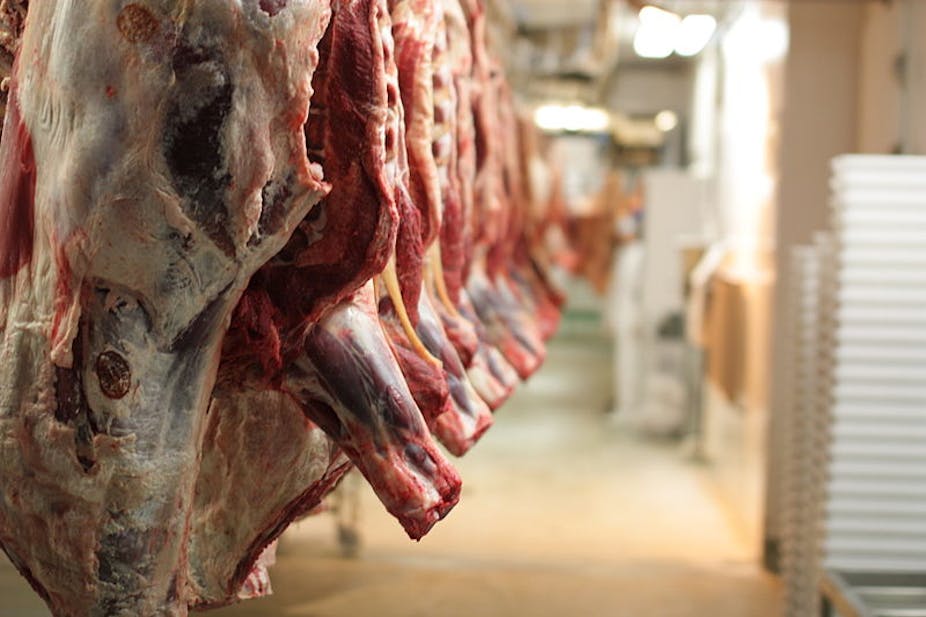A ban on halal and kosher slaughter without prior stunning of animals has come into effect in Denmark. A similar ban is already in force in Sweden and Norway, as well as other European nations. This decision follows previous debates in Denmark about halal slaughter and the marking of halal slaughtered meat, and has stirred deep controversy among Muslim and Jewish groups both within the country and beyond.
The ban was called anti-Semitic by Israel’s deputy minister of religious services; similarly, the Danish non-profit group Danish Halal decried the ban as a clear infringement of religious freedom. The issue is also expected to put severe strain on bilateral trade with countries such as Saudi Arabia.
In announcing the ban, the recently appointed Danish minister for food, agriculture and fisheries, Dan Jørgensen, referred to a Danish animal protection law that allows the minister to make the decision like this without first taking it to the Danish national parliament. Jørgensen once served as president of the Animal Welfare Intergroup, which advocates animal welfare and conservation issues, and he has been widely cited as arguing that that the imperative to legally protect animal welfare trumps religious liberty.
But the ban raises a number of issues beyond this one, which has dominated the coverage. First, food consumption is an important way of expressing of religious identity and rights at the personal and organisational level. Muslim and Jewish groups’ carefulness about everyday halal/kosher consumption has led to rigorously enforced regulations on global production and trade. Banning religious slaughter directly undermines the whole international structure of third-party certification of halal and kosher products, which was built to ensure that producers live up to requirements such as slaughter without stunning.
The ban also flies in the face of various well-funded transnational attempts to bridge the gap between animal rights advocates and religious interest groups. For example, an EU-supported project, DIALREL, aims to improve public knowledge on religious slaughter through dialogue on issues of welfare, legislation and socioeconomic concerns. That project explicitly focuses on religious slaughter as a controversial and emotive subject, caught between animal welfare considerations and cultural/human rights issues. The Danish ban seems to consider the conversation closed.
British restraint
This is a sharp contrast to the way that Britain has dealt with the issue of religious slaughter. In the UK, there are no plans to ban religious slaughter without stunning. The British state recognises these religious requirements as rights, and they are legally defined and protected by various acts. Some animal rights groups see these laws as inhuman, and controversies over Muslim and Jewish slaughter of animals without stunning have periodically surfaced, but Britain has a long history of accommodating religious slaughter in various forms.
This extends back at least as far as early interactions between modern Britain and the Islamic world: for instance, when three Moroccan delegations visited London in the 17th century to strengthen the Anglo-Moroccan alliance, civil servants of the time were faced with the challenge of halal meat provision for the first time.
While Denmark turns away from accepting religious slaughter without stunning, London is emerging as a centre for halal production, trade and consumption. At the same time, the meaning and practices of halal are being transformed and contested. As I have found in my own work, many British Muslims paradoxically see the proliferation of halal as a measure of the impotence of secular government: the more the culture of Islamic consumption asserts itself, the more the state’s inability to fully recognise and regulate halal is felt.
Although the food markets of an EU member state such as Britain are increasingly regulated at the state and EU level, this is often not the case with “ethnic”, “spiritual”, “world, or "religious” food, products and practices. This applies to ayurveda or feng shui just as much as kosher or halal. On the whole, religious food and markets remain largely outside direct consumer protection and state regulation.
Accordingly, in Britain, halal is mainly certified by both the Halal Food Authority (HFA), an organisation set up in 1994 to certify halal meat, and the Halal Monitoring Committee (HMC), established in 2003 in Leicester. Contrary to the HFA, the HMC is against the stunning of animals before slaughter. These two organisations are therefore competitors, with overlapping interests and claims for authority in the halal market.
Yet still, hostility to religious slaughter without stunning has heightened awareness of religious practice and a sense of self-identity among many British Muslims and Jews. In comparison, the number of Muslims and Jews in Denmark is small, and historical interactions between Denmark and Muslim/Jewish cultures has been relatively limited. In the Danish context, these groups and their organised representatives simply have limited scope to ensure the right to unstunned meat. They are unlikely to be able to reverse the ban, not least with a Danish political leadership that seems happy to prioritise animal rights over the interests of religious consumers.

